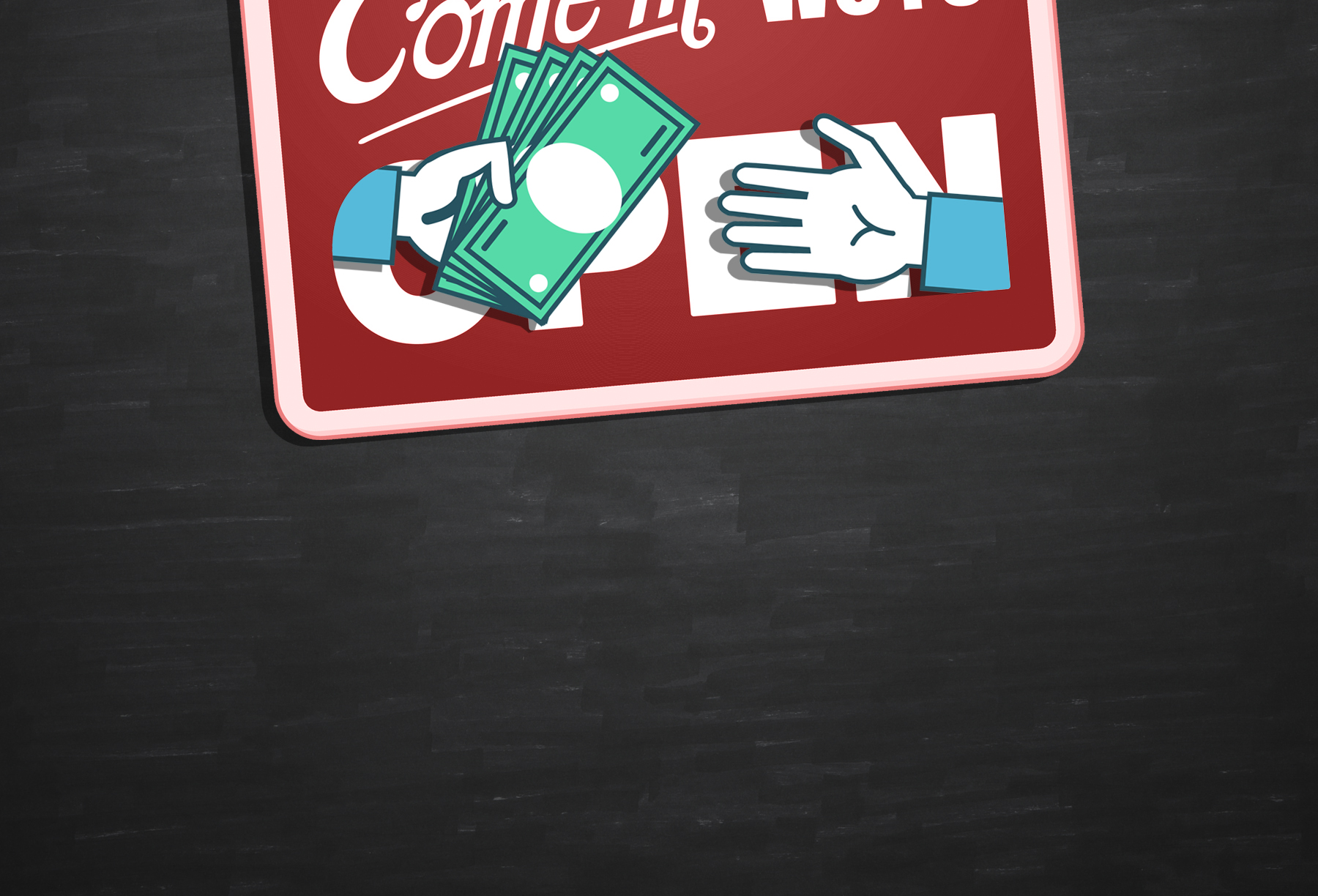2020 is the year to shop small
Small businesses need our help now perhaps more than ever


A free daily email with the biggest news stories of the day – and the best features from TheWeek.com
You are now subscribed
Your newsletter sign-up was successful
If there were ever a year to shop small for Christmas, 2020 is it.
This year has been unprecedented, chaotic, and frightening for Americans in a lot of ways. But since March, the year's upheavals have had a severe impact on small businesses.
A survey of nearly 6,000 small businesses between March and April of this year found that only weeks into the pandemic, massive layoffs and closures had already occurred. Many businesses were financially fragile, and expected their hardships to continue throughout the year. While several small businesses recovered somewhat during the summer, according to the National Small Business Association, only one-third were "very confident" they'd be able to recover from the pandemic and economic downturn; 99 percent of respondents said they were "very" or "somewhat" worried about their ability to survive.
The Week
Escape your echo chamber. Get the facts behind the news, plus analysis from multiple perspectives.

Sign up for The Week's Free Newsletters
From our morning news briefing to a weekly Good News Newsletter, get the best of The Week delivered directly to your inbox.
From our morning news briefing to a weekly Good News Newsletter, get the best of The Week delivered directly to your inbox.
Now, as COVID-19 cases and hospitalizations increase across the country, leading many states to crack down again on business and social gatherings, there's a chance that small businesses could face another huge hit, both before and during the Christmas season.
American's consumerism most often leads to a glut of spending after Thanksgiving. People line up outside Targets and shopping malls, hoping to score a new television or appliance. Often, fights over Black Friday deals break out in stores across the country. (So much for Christmas spirit and generosity.) I rather hope COVID-19 guidelines and precautions prevent Americans from indulging in the worst of their avaricious spending sprees this year. Of all the things to risk crowding in place for, a new smartphone may be the worst. Please don't risk your health — and the health of your community — for some fancy new gadget or cheap Christmas deal.
But there's a chance we could do more than merely avoid our worst shopping vices. Perhaps this year, we could trade in our usual consumptive habits for more meaningful shopping traditions, and thus add some value to one of the more dubious habits of the American holiday season.
There are a handful of companies that can and will benefit hugely from the stresses and anxieties of this season in American life. Amazon, in particular, has experienced explosive growth this year, even though (as The Verge reported earlier this year) it does so by "continuously push[ing] workers to the point of harm in the name of efficiency." Amazon's impact on our shopping habits, as well as on the wellbeing of its workers, should give us pause before we wholeheartedly embrace their Black Friday and Cyber Monday deals.
A free daily email with the biggest news stories of the day – and the best features from TheWeek.com
True, there are few safer options for the average American consumer than to purchase everything from the comfort of one's couch. It would be easy for us, struggling with fear, mental stress, or other anxieties of this strange season, to turn to the most efficient means of holiday shopping — whether through Amazon or other behemoth online retailers.
But businesses with fewer than 500 employees are responsible for nearly half of American jobs, and 43.5 percent of our GDP, according to Harvard Business Review. The Institute for Local Self-Reliance reports that independent, locally-owned businesses are credited with fostering higher incomes and fighting income inequality, fueling job creation, generating more tax revenue, improving environmental sustainability, fostering community health and cohesion, and more. Buying local isn't just a sentimental move; it has a marked impact on the places where we live.
And the places we live have suffered this year. People have died, lost jobs, feared over the sicknesses of their loved ones, and struggled to put food on the table. Many have faced mental health struggles, as well as societal and familial pressures. Many of our elderly have suffered and died alone. This year, perhaps more than any other, we can demonstrate both our solidarity and our care for our communities.
That should transcend how we shop, and characterize the way we give, as well. Many local ministries — food banks, soup kitchens, clothing donation centers, homeless shelters, nursing homes — are gearing up for the cold winter months, and will need both donations and volunteers. There's a chance that, rather than spending all our extra time shopping online, we could develop the rather subversive habit of using our free holiday time to bless the needy in our community.
But even the simple act of shopping can be impactful, when it is employed to bless our neighbors — and buying local this year needn't be an arduous or dangerous endeavor. Many of my favorite local stores are working hard to keep their employees and customers safe during the pandemic. Continuing to buy local will help these small businesses survive the worst of this winter, and hopefully empower them to survive whatever 2021 might hold (my hope is for normalcy, but there's no telling at this point).
Shopping small this year could involve buying books from local or online indie bookstores, shopping at a local plant nursery or hardware store instead of going to Home Depot, or buying gift cards to locally-owned wineries, breweries, and restaurants. It could involve looking for presents on Etsy or seeking out other small online shops and businesses, getting honey or candles from a local apiary, frequenting locally-owned gift shops or clothing stores, or seeking out a fun thrift shop or antique store find. In the past, I've bought my parents gift cards to the local theater or tickets to a Shakespeare play (many ballet companies and local theaters are still offering fun online deals and showings).
It would be easy this year to allow our shopping to become a highly detached and impersonal event. But if there's one thing 2020 has taught me, it's that our actions can have a far-reaching communal impact. We've all been challenged to work a little harder this year to take care of the people around us — whether it's by wearing a mask and social distancing, or by hunkering down at home for long periods of time. This year has reminded us that we can worry primarily about our own wellbeing, freedoms, and comfort — or we can put forth a little effort to also bless our neighbors, steward our community, and look out for those less fortunate. It feels funny, perhaps, suggesting that our shopping habits could be part of the latter effort, rather than the former. But this year, in particular, it's true.
Who knows? Maybe this year will be an opportunity for us to engrain new habits of giving that we will continue to foster in future decades. But regardless, I hope this holiday season will prompt us to shop and give differently, so that we can serve our neighbors in a deeply tangible way. Honestly, that sounds far better than scoring a huge deal on a new Amazon Echo.
Gracy Olmstead is a writer and journalist located outside Washington, D.C. She's written for The American Conservative, National Review, The Federalist, and The Washington Times, among others.
-
 The ‘ravenous’ demand for Cornish minerals
The ‘ravenous’ demand for Cornish mineralsUnder the Radar Growing need for critical minerals to power tech has intensified ‘appetite’ for lithium, which could be a ‘huge boon’ for local economy
-
 Why are election experts taking Trump’s midterm threats seriously?
Why are election experts taking Trump’s midterm threats seriously?IN THE SPOTLIGHT As the president muses about polling place deployments and a centralized electoral system aimed at one-party control, lawmakers are taking this administration at its word
-
 ‘Restaurateurs have become millionaires’
‘Restaurateurs have become millionaires’Instant Opinion Opinion, comment and editorials of the day
